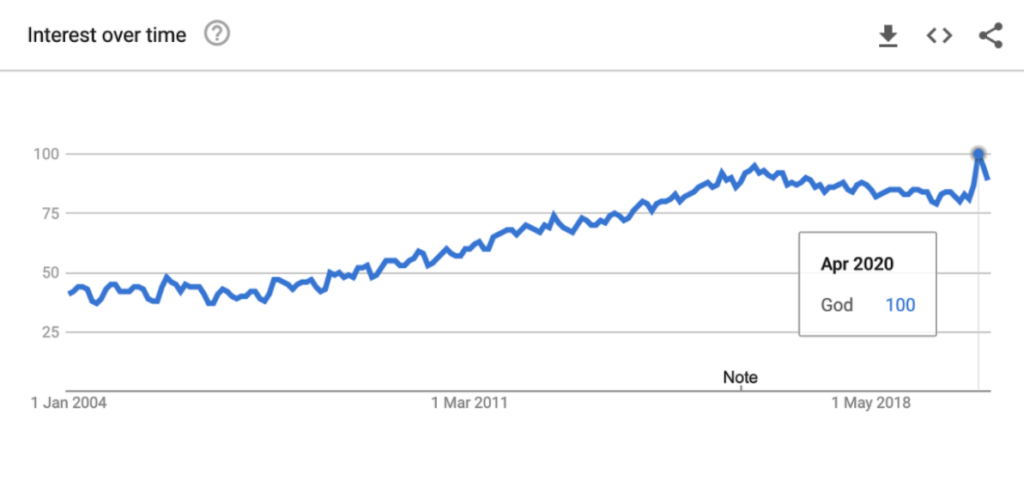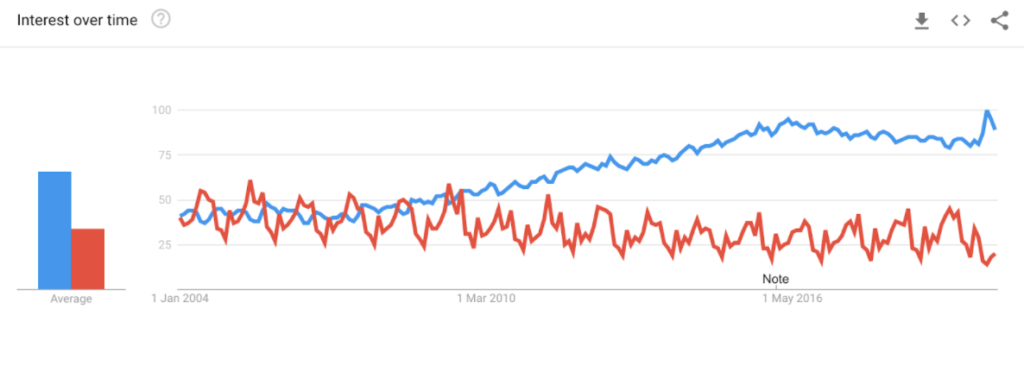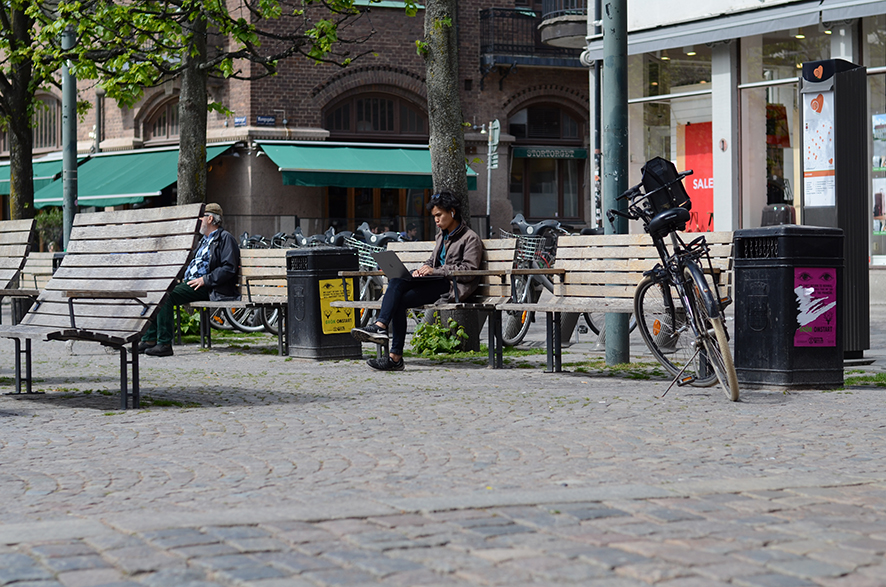God is trending
God is trending
God is popular on Google. Since the start of the COVID-19 pandemic, there seems to be a rise in religious sentiment around the world. More than two-thirds of religious Americans believe God is using COVID-19 to tell humanity to change its ways.[1] One in four adults in the UK is now watching or listening to a religious service while one in every 20 has started praying during the crisis.[2] Pakistanis, refusing to restrict religious practice during the lockdown, have declared they will fight COVID-19 “with faith”.[3] Just as the pandemic led to restrictions on religious life, God took on greater urgency than ever before. Less able to visit churches, mosques, or synagogues, more and more people are going online in search of God. What are the trends in this digital religion?
Searching for God
With the onset of the COVID-19 pandemic, googling on “God” has not only increased globally, but it is also the highest it has ever been.[4] Several reasons stand out. People are trying to find out why COVID-19 happened. Some believe it is a divine reckoning for sinful lives, while others see it is a trial to purify souls. For most people, COVID-19 is a call to change themselves and the world around them: more than 60% of those who believe in God feel COVID-19 is a sign telling humanity to change. People are also searching for God because they are seeking divine protection. 55% of people feel at least somewhat that God will protect them from being infected.[5]But being “good with God” offers not only physical protection: it also offers the protection of the soul. A “spiritual immune system”, as Professor Jeanet Sinding Bentzen of the University of Copenhagen calls it.[6]

“Coronavirus prayer”
Google searches for prayer have also increased. During March 2020, when COVID-19 was declared a pandemic and the lockdowns started, the share of Google searches for prayer surged to the highest level ever recorded: 50% higher than it was in the previous month alone. Professor Bentzen, who led the research, explains why this is happening: “In times of crisis, humans tend to turn to religion for comfort and explanation. The theory is called religious coping and the 2020 COVID-19 pandemic is no exception.” She found that the rise was highest for Christians, particularly Catholics, followed by Muslims. This global phenomenon even affected the less religious parts of Europe. “When WHO declared COVID-19 a pandemic, search-shares for prayer rose around mid-March for most regions, even for the most secular regions of Northern Europe,” she explains.[7]
Changing what “God” means
Googling on God has allowed people to reframe their experience of COVID-19, to make better sense of it, and perhaps even find a higher purpose. And with people increasingly turning to God online to find meaning, they are also changing what “God” means to them. Free from restrictions of work, place, and time, all faiths are seeing changes in how, when, and where people reach out to God. For example, with the boom in online prayer, Christians in Europe are now praying every day, not every Sunday. A month into the lockdown in the UK, the Church of England saw 10,000 installations of its ‘Time to Pray’ app. Reverend Kate Harford, a university chaplain and priest within the Metropolitan Community Churches, agrees: “People’s relationship with their concept of God is changing.”[8]

Muhammad Faisal Khalil
Would you like to know more about related topics? Create an account on our Dashboard and get free updates.
To all news items ->
[1] Two-thirds of US believers see Covid-19 as a message from God, poll finds
[2] British public turn to prayer as one in four tune in to religious services
[3] Islamists are frustrating Pakistan’s fight against coronavirus
[4] https://trends.google.com/trends/explore?date=today%205-y&q=%2Fm%2F0d05l6
[5] Poll: US believers see message of change from God in virus
[6] Pandemic prompts surge in interest in prayer, Google data show
[7] Pandemic prompts surge in interest in prayer, Google data show
[8] Pandemic prompts surge in interest in prayer, Google data show






